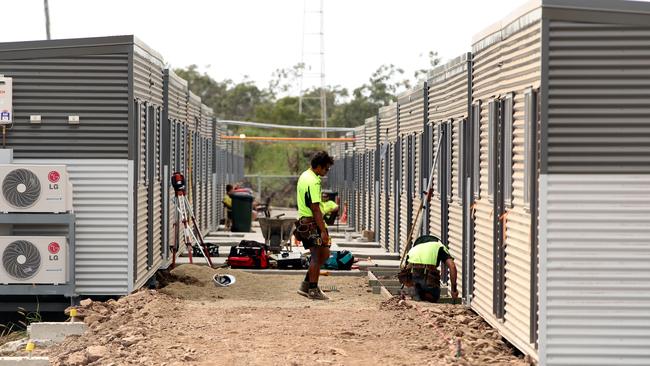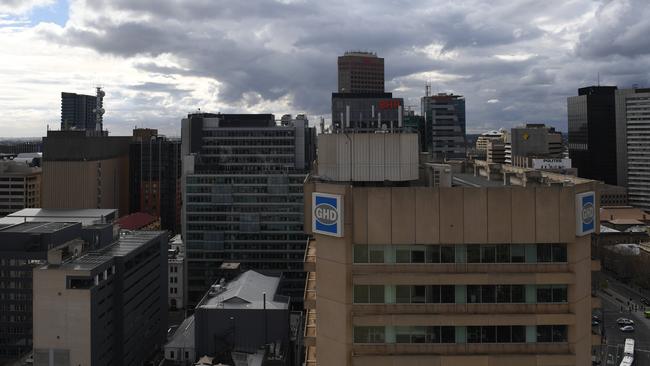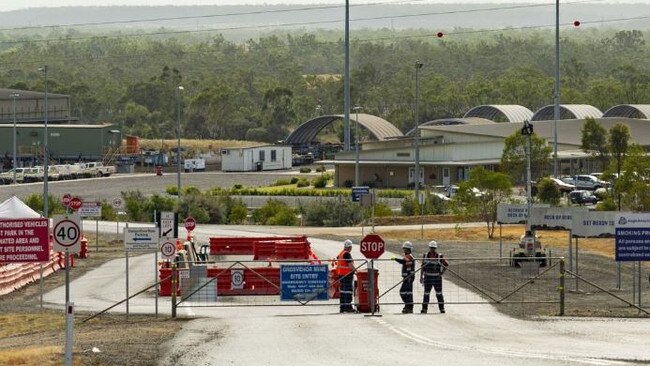Don’t buy here: property no-go zones for investors revealed
A “no go zones” report for investors has revealed multiple suburbs where an oversupply of housing has driven up vacancies and sent prices into a downward spiral. Here are 25 of the worst.
Property
Don't miss out on the headlines from Property. Followed categories will be added to My News.
Capital city suburbs with a glut of newly-built homes, mining towns and areas that led Australia’s property price boom last year have been flagged as the riskiest locations to buy real estate.
A “No go zones” report for investors revealed multiple pockets around the country where an oversupply of housing, plummeting buyer demand and an uncertain economic landscape would drive down property values.
The bulk of the “No go zones” revealed in the analysis of ABS, SQM Research and property transaction data were in Queensland and NSW.
The prospect of freefalling prices in these locations meant purchasers had a high chance of losing money if forced to sell.
Rental demand in some areas was also classified “unstable”, leaving real estate investors vulnerable to long vacancies.

Positive Property founder George Markoski, who authored the report, noted rising interest rates could exacerbate the weak conditions in “no go zones” by squashing buyer demand and further pulling down prices.
He added that there was a high chance of property owners in the worst markets going into negative equity, where they owed more on their mortgages than their properties were worth.
The Queensland suburbs labelled “No go zones” included coal mining towns Moranbah and Dysart, along with parts of nearby Mackay, one of the main ports for servicing the coal-rich Bowen Basin.
Suburbs of Greater Townsville, including Burdell, Mount Low and South Townsville, were also flagged due to an oversupply of housing relative to demand, among other factors.
The black-listed NSW suburbs tended to be Sydney and Newcastle areas where home prices skyrocketed last year to the point of becoming unaffordable for new buyers.
Some of these suburbs were also close to massive housing projects, either unit blocks or new estates, and there was an oversupply of properties available, relative to demand.

Sydney suburbs included Ropes Crossing, Lilyfield, Darling Point, Naremburn, Glenfield and Asquith, while “risky” suburbs near Newcastle were Wickham and Dora Creek.
Mr Markoski, who owns 40 properties, said the demographic who would typically purchase in these NSW areas now had much smaller budgets than they did last year due to interest rate hikes and couldn’t pay current, “inflated” prices.
“Some markets just became too hot last year,” he said. “There will be an inevitable adjustment in prices and you don’t want to be in a market where developers flood the market with (new housing).”
Mr Markoski added that there would be some bright spots for the Sydney market but, as a whole, it would be one of the country’s weaker markets.
Smaller capitals like Adelaide and Perth would be among the country’s best performers but they too had risky markets, he said.
“Both the Adelaide and Perth CBDs have too many units,” he said. “The Adelaide CBD is a prime example of an area oversupplied with units.

“They are not a good investment because it can be hard to sell a unit that’s just like hundreds of other units. All it takes is one desperate seller who (accepts) a price undervalue to drag the market down.”
Mr Markoski said mining towns were among the riskiest real estate investments because they were unpredictable.
Many investors were drawn to these markets due to the unusually high rental returns, but this was often a trap, he said.
“The tenancy base is unstable,” he said. “There are times when the vacancy rates are horrendous … the mine can shut or part of the operation can change.
“Investing in a mining town is like buying shares. Values are constantly going up and down. It’s too unpredictable and the whole point of investing in bricks and mortar is it should be solid and reliable.”
WORST SUBURBS TO BUY PROPERTY
Asquith, NSW; Ropes Crossing, NSW; Dysart, Qld; Burdell, Qld; Millars Well, WA; Camden, NSW; Lutwyche, Qld; Andergrove, Qld; Moranbah, Qld; Coburg North, Vic;
Homebush West, NSW; Glenfield, NSW; Dora Creek, NS;, Wickham, NSW;
Caboolture South, Qld; Mackay, Qld; South Townsville, Qld; Mount Low, Qld; Adelaide, SA;
Perth, WA; Yarralumla, ACT; Darling Point, NSW; Lilyfield, NSW; Naremburn, NSW; Beacon Hill, NSW
Source: Positive Property analysis of ABS, SQM Research and other property transaction data



